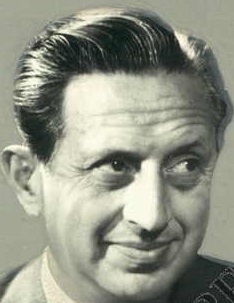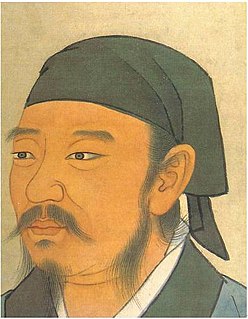A Quote by Leo Rosten
The writer wants to be understood much more than he wants to be respected or praised or even loved. And that, perhaps, is what makes him different from others.
Related Quotes
Putin is just maneuvering. He wants to be respected. He wants to be an important player in global politics. He wants people to negotiate with him and he wants to have the trade-offs here and there and spheres of influence. He's very much a person of the 20th century in the global and geopolitical space.
She couldn't think of anyone else who remotely resembled him. He was complicated, almost contradictory in so many ways, yet simple, a strangely erotic combination. On the surface he was a country boy, home from war, and he probably saw himself in those terms. Yet there was so much more to him. Perhaps it was the poetry that made him different, or perhaps it was the values his father had instilled in him, growing up. Either way, he seemed to savor life more fully than others appeared to, and that was what had first attracted her to him.
There are three kinds of nature in man, as Nicetas Stethatos further explains: the carnal man, who wants to live for his own pleasure, even if it harms others; the natural man, who wants to please both himself and others; and the spiritual man, who wants to please only God, even if it harms himself. The first is lower than human nature, the second is normal, the third is above nature; it is life in Christ.
Most people aren't raised to be hated. We're all raised to be loved. We want to be loved. We're told to do things to be loved and appreciated and liked. We're raised, don't offend anybody, be nice. Everybody wants total acceptance. Everybody wants respect. Everybody wants to be loved, and so when you learn that what you do is going to engender hatred you have to learn to accept that as a sign of success.
A man who wants to die feels angry and full of life and desperate and bored and exhausted, all at the same time; he wants to fight everyone, and he wants to curl up in a ball and hide in a cupboard somewhere. He wants to say sorry to everyone, and he wants everyone to know just how badly they've all let him down.
Get rid of the idea that God wants you to sacrifice yourself for others, and that you can secure his favor by doing so; God requires nothing of the kind from you. What He wants is that you should make the most of yourself, for yourself, and for others; and you can help others more by making the most of yourself than in any other way.
If this [the Mysterium cosmographicum] is published, others will perhaps make discoveries I might have reserved for myself. But we are all ephemeral creatures (and none more so than I). I have, therefore, for the Glory of God, who wants to be recognized from the book of Nature, that these things may be published as quickly as possible. The more others build on my work the happier I shall be.





































